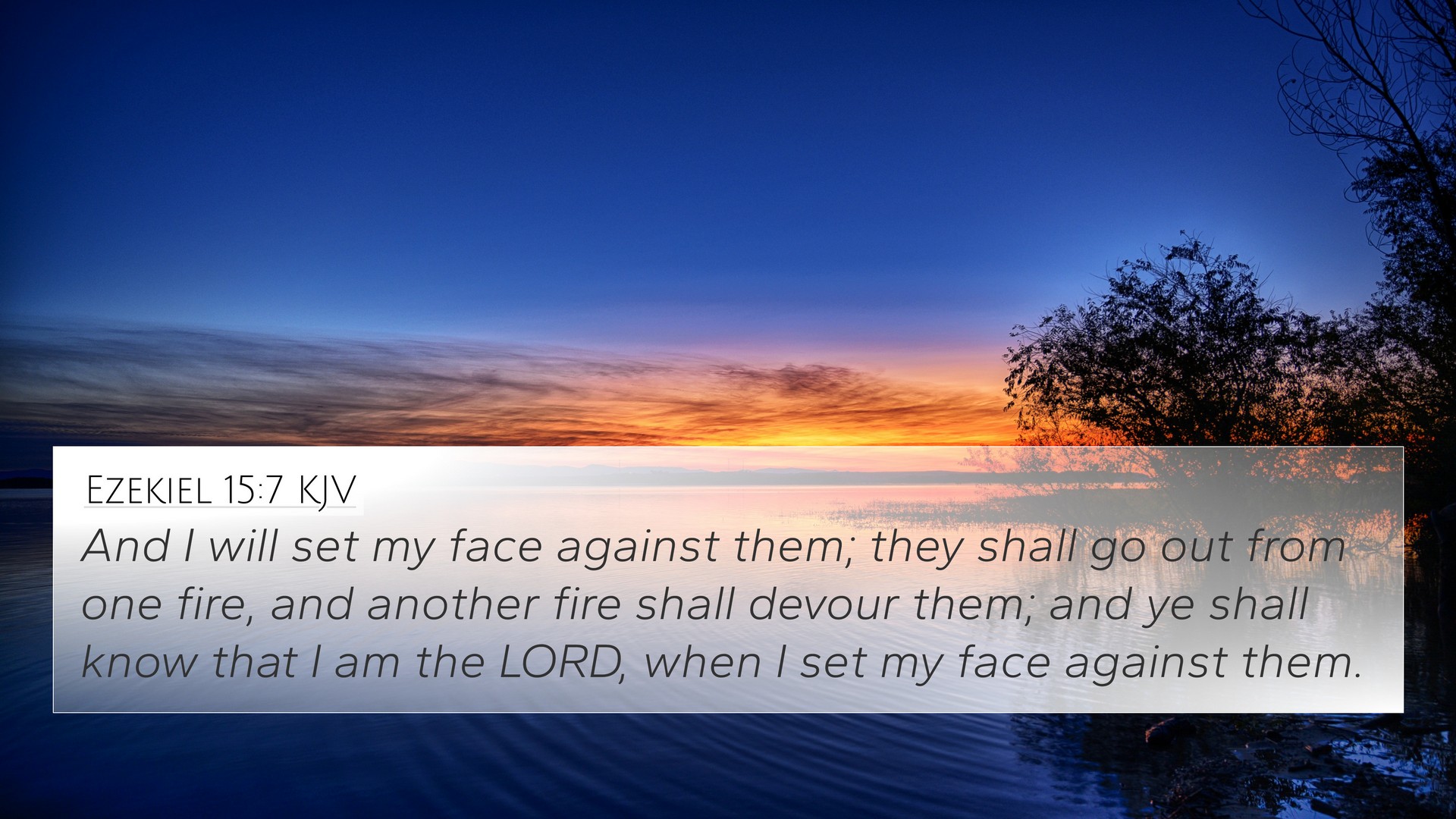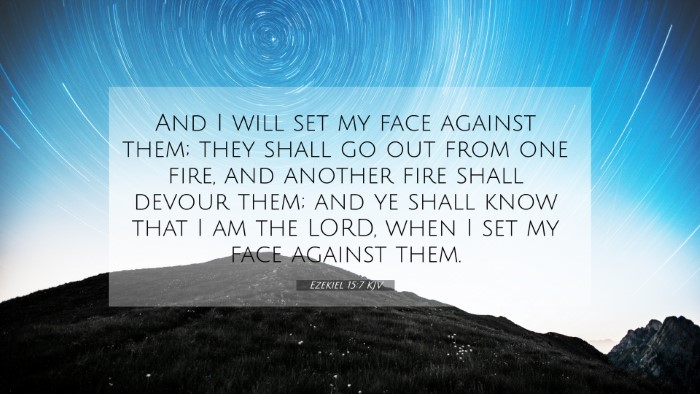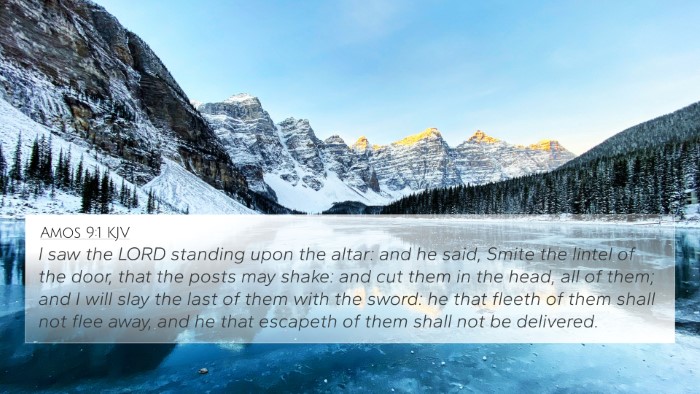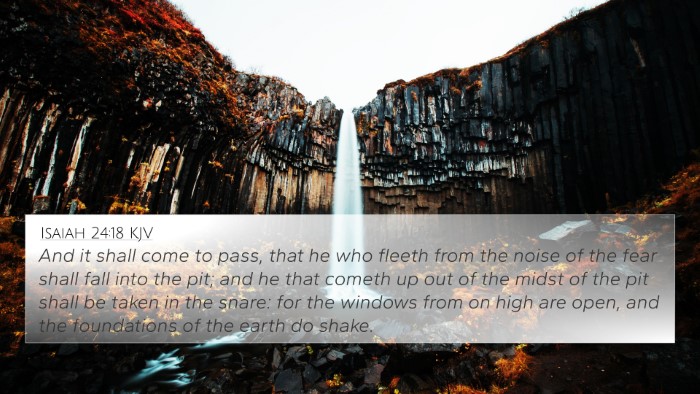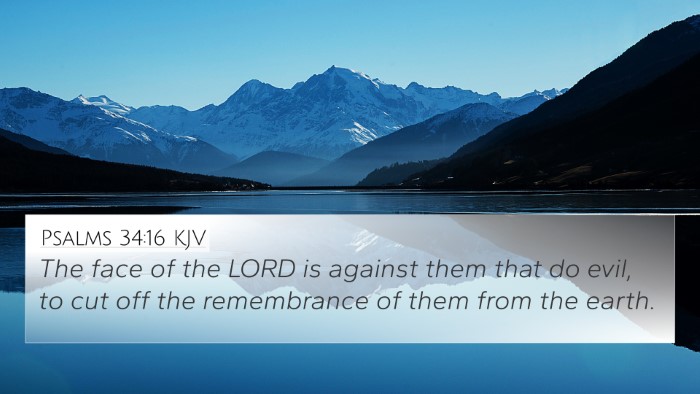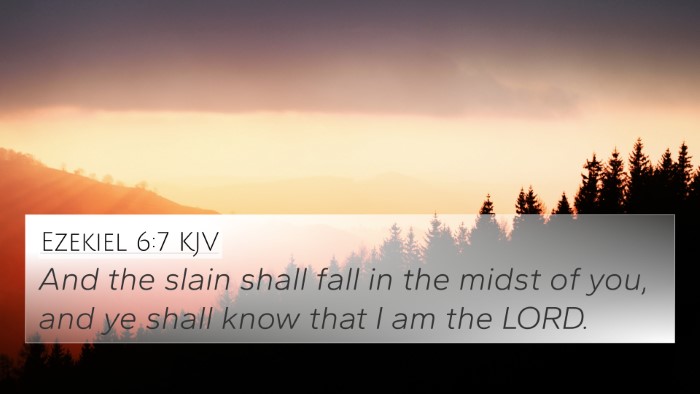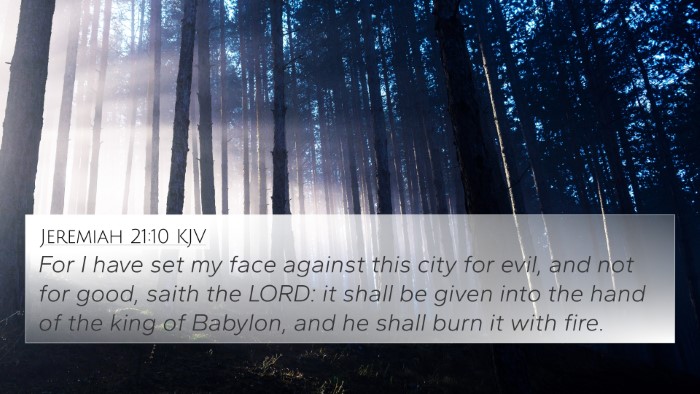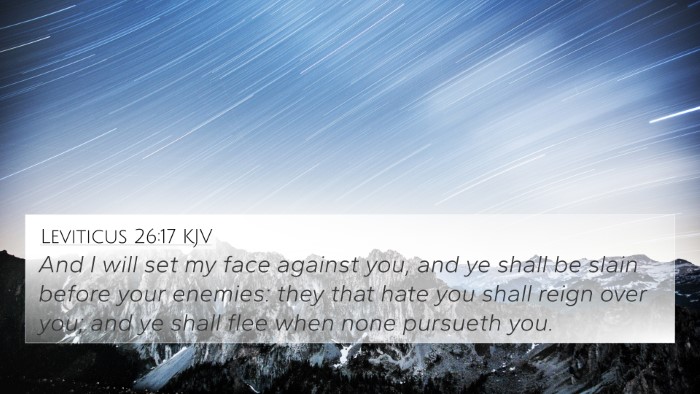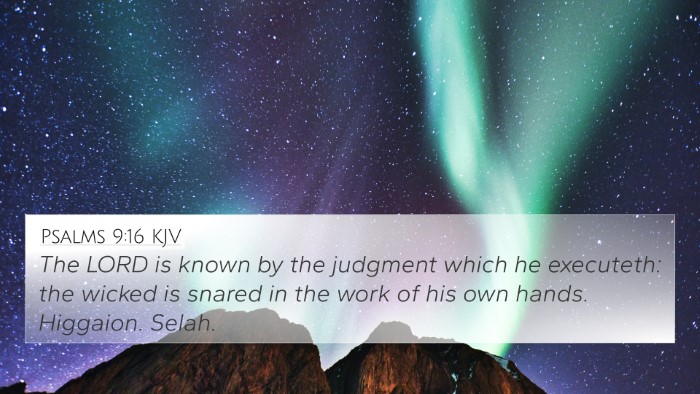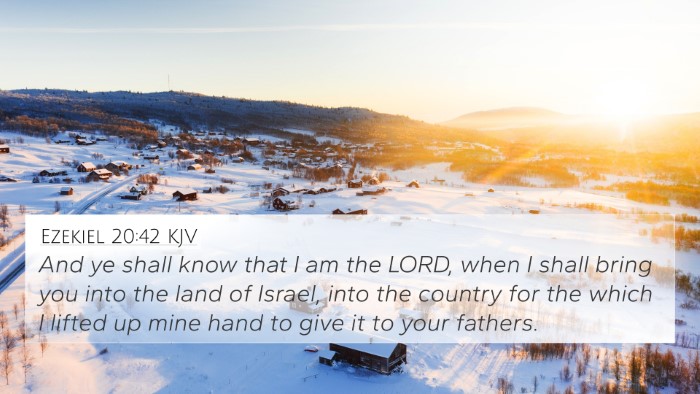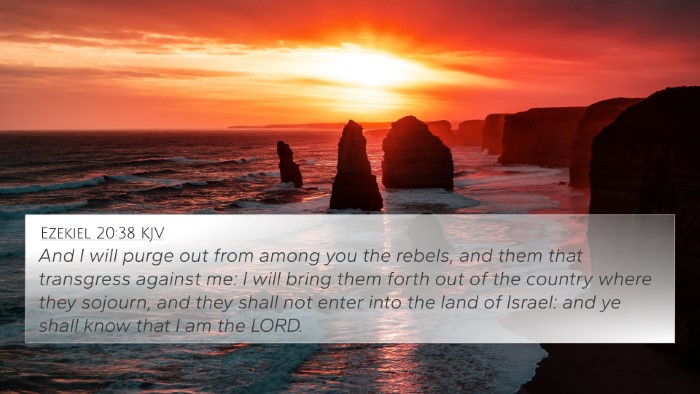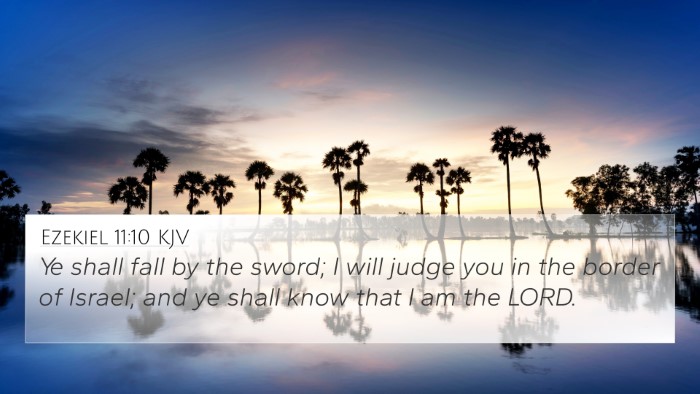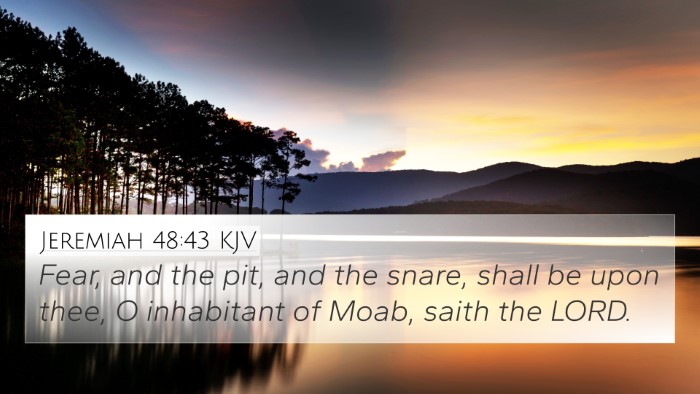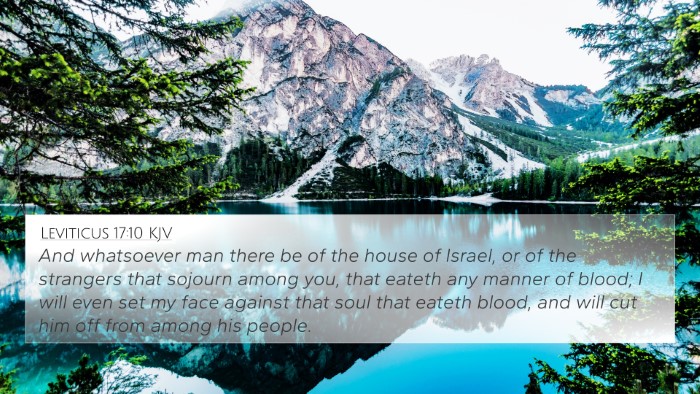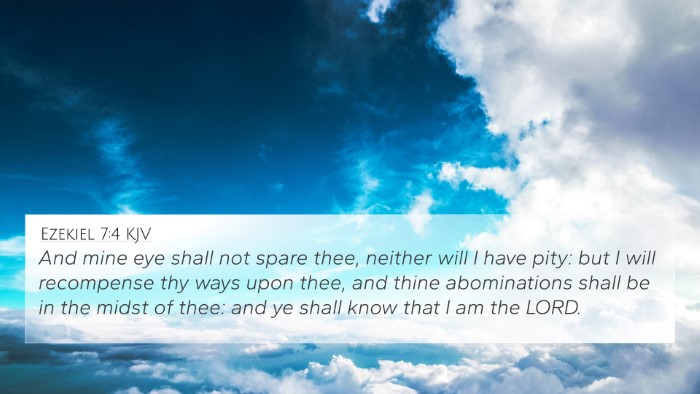Ezekiel 15:7 - Understanding the Meaning
Bible Verse: Ezekiel 15:7 - "And I will set my face against them; they shall go out from one fire, and another fire shall devour them; and ye shall know that I am the LORD, when I set my face against them."
Overview of Ezekiel 15:7
This verse is part of Ezekiel's prophecies, which often illustrate God’s judgment upon Israel for their disobedience. In this particular passage, God expresses His strong displeasure towards His people, emphasizing the dire consequences of their unfaithfulness.
Commentary Insights
Insights from notable public domain commentaries provide a richer understanding of this verse:
-
Matthew Henry:
Henry offers that the vine, representing Israel, loses its usefulness when it fails to produce fruit. Just as a vine is consumed by fire if it’s unfit for use, God’s disfavor will lead to destruction for His people.
-
Albert Barnes:
Barnes notes that God's "face set against" the people indicates His active judgment. The image of fire suggests destruction and purification, showing the severity of their sins and God's righteous response.
-
Adam Clarke:
Clarke highlights the metaphor of fire as a representation of trials and tribulations. The verse underscores that God’s judgment serves both as punishment and an opportunity for repentance.
Thematic Connections and Cross-References
Ezekiel 15:7 contains themes of judgment, destruction, and the need for repentance, paralleling various scripture passages throughout the Bible. Here are some related Bible verses:
- Jeremiah 6:21: "Therefore thus saith the LORD; Behold, I will lay stumblingblocks before this people, and the fathers and the sons together shall fall upon them; the neighbor and his friend shall perish."
- Hebrews 12:29: "For our God is a consuming fire."
- Isaiah 66:16: "For by fire and by his sword will the LORD plead with all flesh: and the slain of the LORD shall be many."
- Lamentations 3:43: "Thou hast covered with anger, and persecuted us: thou hast slain, thou hast not pitied."
- Ezekiel 14:21: "For thus saith the Lord GOD; How much more when I send my four sore judgments upon Jerusalem, the sword, and the famine, and the noisome beast, and the pestilence, to cut off from it man and beast?"
- 2 Peter 3:7: "But the heavens and the earth, which are now, by the same word are kept in store, reserved unto fire against the day of judgment and perdition of ungodly men."
- Isaiah 1:28: "And the destruction of the transgressors and of the sinners shall be together, and they that forsake the LORD shall be consumed."
Understanding the Context
The context of Ezekiel's prophecies generally revolves around Yahweh's covenant relationship with Israel and the consequences of breaking it. The Lord's anger in Ezekiel 15:7 serves as a warning to both the Israelites and the readers today to recognize the gravity of turning away from God.
Living Out the Interpretation
In application, believers are called to reflect on their own lives in light of this scripture. The imagery of fire not only speaks of judgment but also of potential purification. It prompts a deeper exploration of how our lives align with God's expectations.
Exploring Cross-References
Cross-referencing biblical texts allows for a nuanced understanding of themes across scriptures:
- Explore the connections between the Old Testament warnings in Jeremiah and Ezekiel regarding judgment and the New Testament implications of God’s consuming nature in Hebrews.
- Investigate how the imagery of fire in Isaiah parallels with its New Testament fulfillment seen in 2 Peter.
- Study the continuity between God’s judgments portrayed across prophetic books and his fulfillment in Christ’s teachings about repentance and judgment.
Conclusion
Ezekiel 15:7 powerfully encapsulates the theme of divine judgment and the necessity of repentance. The cross-references offer paths to understanding the broader narrative of Scripture, where God's justice and mercy intersect. By analyzing these connections, believers can enhance their spiritual growth and commitment to living according to God's word.
